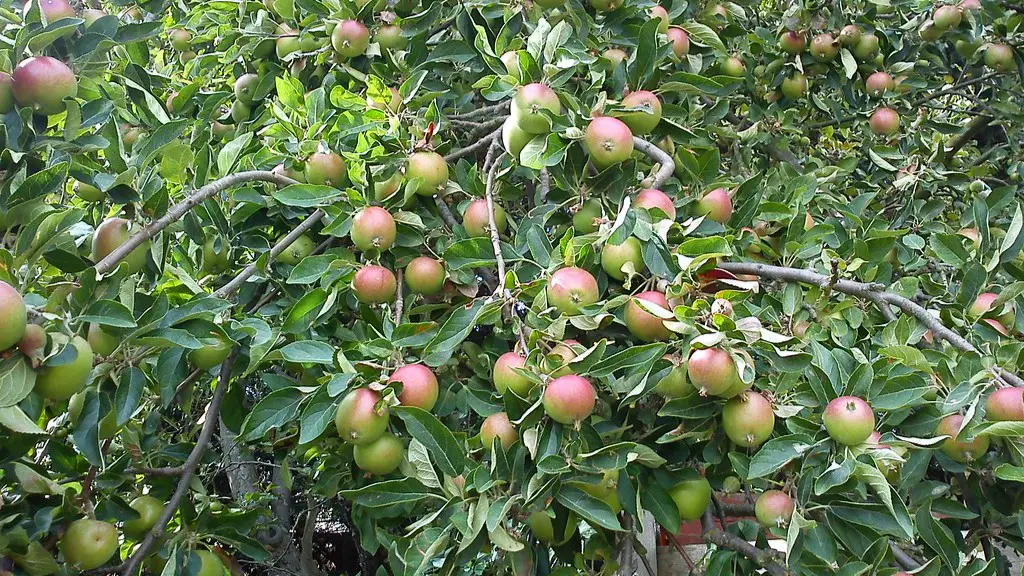George Washington and the famed Cherry Tree Fable
The famous story of George Washington and the cherry tree is one of the most beloved American fables known to the world. For generations, the tale of George Washington’s honesty and integrity has been passed down to children as an example of good behavior. The story went that when Washington was a young boy he had been asked by his father whether he ‘chopped down the cherry tree in the garden’, to which he replied ‘I cannot tell a lie, I did it with my little hatchet.’ The moral of the story being that he had valued honesty over pride, and it has since become deeply embedded in American culture, being taught to many generations of school children in the U.S.
However, this much-beloved tale of George Washington, the cherry tree and honesty, may not actually be true. While there is no denying the fact that Washington was a fundamentally honest man, it is more than likely that he never actually chopped down the cherry tree. The tale as it stands originated much later than most assume, as first documented in the 1840 biography of Washington by Parson Mason Weems. Weems drew upon existing legends, stories, conversations and a range of other possible sources when writing his book, making the authenticity of the tale highly questionable.
Historical experts have long debated the veracity of the façade, but the consensus is that it is more a fable than anything else, with the story having grown in importance and detail over the years. While a young George Washington certainly may have had to have endured some disciplinary measures, the tale of the cherry tree, and the man’s principled response, is just not likely to have occurred in the way it has been represented.
The symbolism of the story is certainly profound, however, it is no more than a metaphor for the honesty and integrity of the Founding Father, conjured up by Weems to help teach morality to children. When asked about the myth, historian Douglas Southall Freeman commented that it was ‘a myth, not a fact, but a myth the whole nation can be proud of.’ As such, it’s certainly no surprise that it has endured in American culture to this day.
With or without the cherry tree, Washington’s legacy remains one of the most noble and respectable in American history. He is respected and lauded internationally for his patriotism, leadership and devotion to the nation, with his legacy influencing the way in which America views itself as a society even to this day. It is therefore understandable why the tale of Washington and the cherry tree persists and persists, regardless of its partial origins in tall tales of yore. The cherry tree might not be actual fact, but the story it tells is a powerful one, and one that will continue to be told for many generations to come.
The importance of good morality
Moral guidance is essential for children to understand how to distinguish between good and bad behaviors. George Washington as an individual has stood for invaluable values of honesty, loyalty, perseverance and justice for generations, and these values are meanings which are fundamentally important for teaching children good behavior. What better way to do this than through fables which demonstrate high morals and values for the next generation?
Not only does this famous fable teach its audience how an individual can strive to demonstrate good traits, but it also garners admiration and respect not only for the individual at hand, but also for the virtues themselves. It encourages boldness, bravery, and integrity, as well as humility and respect for the truth. It showcases a man who was not only admired as a commander and leader but also as a moral example to all.
When children, or even adults, learn about the George Washington and the cherry tree fable, those people are exposed to important lessons that can shape their lives. Respect, honesty, humility and a deep-rooted dedication to serve the truth are core values that can be gained from understanding this fable. Valuable virtues such as these are hard-fought values that should never be forgotten.
It is undoubtedly important for people to learn about the lessons that can be drawn from this famous fable, and why it is so essential to teach them to the next generation. It is essential for children to understand how to differentiate between good and bad values and how to practice good moral lessons. It is no wonder why the fable has remained so important in the present day.
The timelessness of the message
Many stories that have been passed down through generations have a certain timelessness at their core. The ‘George Washington and the Cherry Tree’ fable is no exception. George Washington was part of a generation born into remarkable change, and he was a remarkable person in and of himself. That is why the story of the cherry tree has become such a timeless element of American culture. No matter when and where it is re-told, the essential moral remains intact and strong.
Many hardships and achievements were experienced in the life of George Washington. He maintained immense integrity, respect and devotion for the fledgling nation he was building and the people he served, and this is a message which rings true through even to this day. He is remembered for his high morality and honesty, and while he didn’t literally chop a cherry tree down, this fable is a perfect example of how his experiences, particularly the moral lessons he learned, have become a timeless element of American culture.
The moral of the fable remains vital as ever, that honesty should always be valued above pride. This is a message that needs to be continually communicated over and over, especially to younger generations. It’s a message, a lesson, which can be taken away and applied in the real world, no matter the era.
Ultimately the fable demonstrates how a leader who valued honesty and integrity above all other things, should not be forgotten, and that his legacy is a lasting one. It is a metaphor for the community and nation George Washington helped to build, and it teaches us how we can strive for a better, more honest community for ourselves, for our friends and for our neighbours.
A lasting legacy of morality
The fable of George Washington and the cherry tree is thought to have served purpose, to teach by example. It’s a representation of a leader who did not just value capability but also valued something much deeper; morality. It speaks to the legacy he left so long ago, a legacy which speaks to our values, our integrity and our honesty.
Washington’s legacy has endured for centuries. He represented the hopes and aspirations of newly formed nation, but also the prospect of a better world, as his actions and integrity embodied the representation of virtue in American culture at a time of oppression and difficult world politics.
It is questionable whether the cherry tree fable is in fact true, but its spirit remains a treasured part of America’s history, and a symbol of morality and virtue for the nation at large. It is ultimately this importance of the story which has allowed it to be passed down for generations, a treasured and powerful part of American culture.
Honesty as an element of choice
When it comes to making a decision, honesty is always the better option. Even if the situation does not call for it, this is a powerful choice which should always be respected and appreciated. In those moments when a choice between truth and a lie has to be made, it is important to remember that honesty has its rewards, even if those rewards are not tangible.
Honesty can lead to sincere respect and admiration, not only from other people but also from ones self. There is nothing worse than lying and having to live with the guilt of a decision which was based on falsehood. Lying can also lead to an erosion of values, as if you find it easy to lie once, you may find it easier to do it again.
It goes without saying that Washington was a man who valued honesty above all else, and this is why the tale of the cherry tree is so significant. It serves as a reminder that honesty is always the most important, and that when a decision needs to be made, it is important to remember to always be honest.
Traditional values and the future
It is worth noting that Washington was part of a generation which faced immense change, from the American Revolution to the formation of the United States itself. It is understandable as to why a story as powerful as that of ‘George Washington and the Cherry Tree’ has persisted through the years, as its symbolism and meaning has become so entrenched in American culture and history.
The traditional values which the Founding Fathers, such as Washington, held deep in their lives are still relevant to today’s society. Thankfully, in the present day, most society respects traditional values and is guided by them. It is therefore our responsibility to propagate these values and legacy to the generations of tomorrow, in the hope that they too will uphold these virtues as dearly as those before them.
Those who choose to remain faithful to traditional values, such as the ones espoused by George Washington and the cherry tree fable, will certainly be rewarded in their life. Morality is an essential element of our lives, and it is important to remember that honesty always wins out when it comes to decision making.
Lessons of humility
The story of George Washington and the cherry tree is a reminder that sometimes it is best to maintain a sense of humility. The fable explains how Washington acknowledged his wrongdoing yet still the truth and owning up to the something which could have easily been hidden from the eyes of others. This is incredibly admirable, particularly from someone so young and inexperienced.
This teaches us a valuable lesson about facing our mistakes and learning from them. We should not try to cover our own faults and mistakes, we should instead face them head on and acknowledge them for what they are. We should be humble about our mistakes, yet also still confident in our ability to rectify them. This is exactly the kind of lesson which the chery tree fable tries to illustrate, the lesson of humility.
It is important to remember this message, as it can have immense implications in our day to day lives. We should always strive to be honest and humble, and to always remember to own up to our mistakes. We should also never forget the lessons we can learn from the George Washington and the cherry tree fable, a lesson so powerful it has been remembered and respected for centuries.


